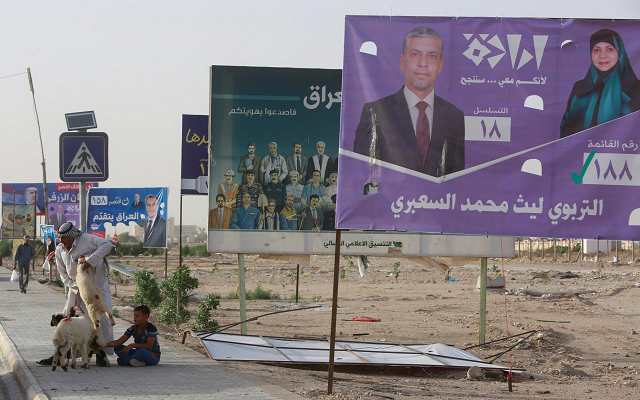
January 30, 2005: Iraqis go to the polls in the first multi-party elections for more than 50 years to choose members of a Constituent Assembly, which will draft a new constitution.
Largely boycotted by Sunni Muslims, the vote is overshadowed by deadly attacks: seven suicide bombings take place in Baghdad and several others around the country.
Divided Kurds face losses in Iraq's election
The violence does not deter voters, especially Shiites in the centre and south of the country and Kurds in the north.
The vote, the first since the fall of Saddam, is won by the list sponsored by Shiite spiritual leader Ali Sistani, the United Iraqi Alliance. The Kurdish alliance comes in second place.
The results seal the coming to power of the Shiites, a majority in the country who have been oppressed for decades under previous regimes.
Iraq voters fed up with 'same old faces'
On April 7 the first Kurdish president in Iraq's modern history, Jalal Talabani, is sworn in. Ibrahim al-Jaafari, a Shiite, is named prime minister.
On October 15, the constitution drawn up by the Constituent Assembly is approved at a referendum. It establishes a federal state and gives Iraqi Kurdistan an autonomous status.
Sunni Muslims, who had been involved in drawing up the constitution, had tried in vain to prevent the setting up of a federation.
December 15, 2005: Iraqis from all sides of the community vote en masse at parliamentary elections.
Journalist who threw his shoes at Bush set to contest elections in Iraq
Little violence is seen on election day itself, but the vote is overshadowed by threats from extremist groups, such as al-Qaeda, resulting in large-scale security measures.
The conservative Shiite list again wins, followed by the Kurdish coalition. The Sunni alliance comes in third position.
In February 2006 sectarian violence between Shiites and Sunnis flares up. The conflict runs on for two years and leaves tens of thousands dead.
In May 2006 the Shiite Nuri al-Maliki takes over from Jaafari, who is unpopular with Sunni Arabs and Kurds.
March 7, 2010: As voting opens for parliamentary elections, mortars and rockets rock the capital while helicopters fly overhead. At least 70 missiles fall, mainly in Sunni neighbourhoods.
However, the massive turnout by Sunnis is a setback for al-Qaeda which fails to intimidate the community despite its attacks and threats.
Shiites vote for Maliki's State of Law alliance and the Iraqi National Alliance; Sunnis vote for the secular Iraqiya of former prime minister Ayad Allawi.
In November a power-sharing agreement is struck between Kurds, Sunnis and Shiites. Talabani is reelected president and Maliki renamed prime minister.
April 30, 2014: The first parliamentary elections since the withdrawal of US troops in 2011 take place.
Two days before the vote the security forces are hit by a spate of attacks.
The electoral campaign is also targeted: several polling stations and election rallies are attacked in violence fuelled by sectarian divisions.
Maliki's Shiite alliance wins the election by a wide margin.
In August Shiite Haidar al-Abadi is charged with forming a new government to replace Maliki.
Maliki was accused of sectarianism and sidelined following the routing of the security forces by the jihadist Islamic State group, which conquered large swathes of Iraqi territory before being defeated in 2017.







1730797335-0/Untitled-design-(81)1730797335-0-270x192.webp)









COMMENTS
Comments are moderated and generally will be posted if they are on-topic and not abusive.
For more information, please see our Comments FAQ